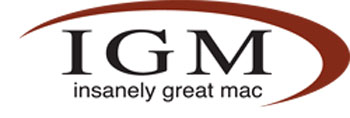$999 iBook v. $849 HP Pavilion
November 13th 2002
With last week's release of Apple's cut-price iBook, we thougt we'd take a quick look at how the base iBook 700 stacks up against the newly-released HP Pavilion.
The Pavilion has just had a price cut of $100 (mail-in rebate). iBook 700 bundles can be found with free printers and other goodies, but not for much less than $999. ZDNet has a rundown of some cheap portables from Apple's main rivals, some of which fall well below the $1,000 mark.
What does $849 worth of HP notebook get you? Some surprising omissions, unless you whip out the plastic again: the basic Pavilion lacks a floppy drive (!), for which you cough up another $50.
Still, you get a 14.1" TFT. a 1.6GHz Mobile Celeron (even more underpowered than the desktop version, but it sucks less juice than a P3 or P4 at least). The Pavilion also gets a 20GB HD and 128MB RAM. HP will only be selling this Pavilion direct, not retail.
Dell matches HP's price at $849 with the Inspiron 2650C, which sports a slightly slower 1.5GHz Celeron, but otherwise matches the Pavilion's features.
Gateway is getting aggressive on price, offering a CDRW/DVD combo drive in its $999 1450SE laptop. The trade off is it only runs a 1.3GHz Celeron, although the company is more generous with storage, making a 30GB drive standard.
Apple doesn't offer prices for 14.1" iBooks as low as this, but the point of the 12.1" iBook is its compact form and very light weight (only 4.9lbs).
As far as I can tell, none of these bargain-basement notebooks offer cards as upmarket as the iBook's Mobility Radeon 7500 (seen latterly in the PowerBook G4). The bae iBook gets only 16MB VRAM, but this is plenty for general-purpose tasks and enough to make some use of QE in Jaguar.
The PC notebooks also lack standard FireWire, although admittedly CardBus FireWire costs as little as $26. The point here is that no CardBus solution will be much more than half as fast as the iBook's mobo FireWire (around 16MB/ps max with a card; around 33MB/ps with the iBook). Plus, you can't power FireWire devices off a card of course (even if it has a power dongle, that needs the AC).
Not to mention you sacrifice a PC card slot with the FireWire (and usually have to carry around an annoying, breakable, dongle. True, the iBook doesn't have a PC card slot in the conventional sense, but its Airport slot hides inside. Flash memory cards aside, there's not much the iBook needs by way of PC cards, with USB and 100bT ethernet already on the mobo.
It's unlikely that the PC portables will match the iBook's battery life either, the key to a notebook's usability. While Apple's claimed 5 hours won't be matched in real conditions, 4 is certainly possible.
Durabiility is also not likely to be a concern with the iBooks' tough polycardbonate shells, a standard feature on this Mac portable, that can't be found among budget PC notebook.
The iBook is still an outstanding package and the base CD model is well worth the unprecedented $999 price tag. Like a quality car, you need to peer below the surface gloss and bells and whistles to appreciate the fine attention to detail and thought that went into the design. The strength of the case, the rubber-mounted hard drive, the speed of the FireWire ports - these aren't immediately apparent features.
But as you use an iBook, you begin to appreciate the design and its plug-and-play approach to hardware/software integration. Plug into any FireWire drive and it appears on the desktop. Plug into another FireWire Mac and you're in Target mode for instant file sharing. Plug in a digicam and control it using iMovie.
There's little doubt about one thing though: notebook buyers are going to get fiercely-competitive deals on portables this Xmas, which should see this market segment grow even faster, while desktop sales continue to lag.
